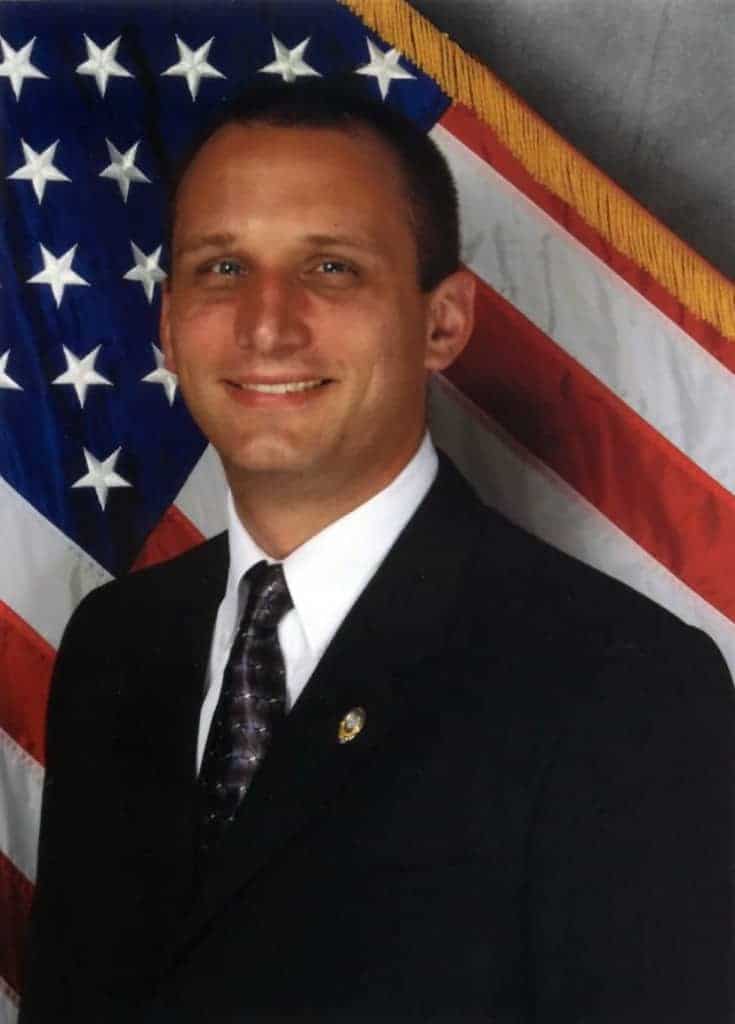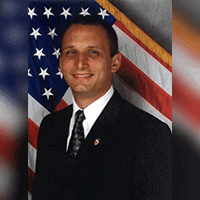In 2007, Detective Paul Kruse had just been reassigned to the Crimes Against Children Unit of the Warrick County Sheriff’s Department. “It was somewhat unexpected”, he says. The largely rural county just east of Evansville and Vanderburgh County didn’t have much to start with, like a CAC. He was the only detective in the unit assigned to work crimes against children. But after five years on the job – three in patrol and two as a narcotics detective – Det. Kruse said to himself, “If I’m going to do this, I’m going to do it right.”
It wasn’t long before Detective Kruse was called to investigate a case that’s stuck with him ever since.
During a scorching hot summer day, Det. Kruse was called to investigate a reported child molestation. “I can remember it. It was one of the first really bad cases of child molestation I’ve worked.”

Called to a rural home, Det. Kruse was joined by a Child Protective Services caseworker from the Indiana Department of Child Services. “The child had several siblings, so we interviewed the victim in the family’s motor home in the driveway.” The motor wasn’t running and temperatures inside were “sweltering hot”, said Kruse.
“It’s us with the kid trying to get the child to describe what happened on an audio recorder,” said Det. Kruse. “As that case progressed, none of us were really trained for this type of investigation. The following day we conducted a video recorded interview at the Sheriff’s Office, which is part of the jail.”
As the interview started, Det. Kruse recalls, “It wasn’t at all the best environment. The prisoners were literally banging on the doors and walls just outside of the room we put the child in for the interview.” In the midst of that highly stressful situation, charges were filed and the court date was set.
As the case was about to go to trial, the Prosecutor called the child in for a witness conference. Det. Kruse remembers, “Not being trained in child interviewing, the prosecutor asked a couple questions and jumped right in to ‘tell me what happened’. There were so many of us in that room, from myself to GAL/CASA, CPS, and the Prosecutor, and the child just locked up.”
“There were so many of us in that room, from myself to GAL/CASA, CPS, and the Prosecutor, and the child just locked up.”
That kind of response from children isn’t unexpected to trained interviewers and MDT members, but at the time, it wasn’t expected.
“We sat that child in this huge room at an adult-sized table and chair and asked them to tell us what happened for at least the third time. The child was not ready to do that,” says Det. Kruse with a sense of regret and frustration. Since the case couldn’t move forward, the charges were ultimately dropped.
Asked if he knows what has happened to that child since, Det. Kruse says, “We’ve revisited that case on one occasion. The child has since been adopted and has moved on. Charges could still be re-filed before the statute of limitations runs out.” But statistically, that case is unlikely to be revisited.
Fast forward about a year and a half later and that same case would have likely been handled much differently. Despite the idea of a CAC, MDTs, and forensic interviews being, as Det. Kruse described, “a completely unknown concept in Southern Indiana” at the time, Det. Kruse went to a Finding Words training in 2008 to learn about crimes against children and learn how to further develop in his role professionally.
It wasn’t easy, however, as budgets were tight. Instead of waiting on funds, Det. Kruse approached local civic organizations to help raise the money for the training. “The Knights of Columbus, Kiwanis, Moose Lodge, Elks, and others in our community really stepped up. Our Sheriff’s Office also worked with the Indiana State Police to become an affiliate agency on the Internet Crimes Against Children Task Force, which came with a funding boost. Their help along with some scholarships got me to that training.”
Meanwhile in 2008, Holly’s House Child Advocacy Center opened in neighboring Evansville. Suddenly, all the pieces were available for Det. Kruse to avoid a repeat of cases like the one in the summer of 2007.
“It was October 2008 that the Prosecutor agreed to send a Deputy Prosecutor to work as a Sex Crimes Prosecutor. We worked together from that point once we made the investment, and with Holly’s House from early 2009,” says Det. Kruse. “Once we had that buy-in, we established our MDT and we pushed forward. It took a while to get everyone in our county to use Holly’s House, but we had to acknowledge it’s a specialty that needs to be worked with,” says Det. Kruse. SWICACC has opened another nearby CAC in Jasper, Indiana, too.
Today Det. Kruse sees victims who have grown up around town, along with their families. Through help and good relationships with the Indiana Chapter of the National Children’s Alliance, Det. Kruse knows Warrick County is in a much better situation. “The training we received then and continue to receive from the Indiana Chapter, as well as peer review and knowing help is a phone call away is huge.”
For officers and law enforcement agencies elsewhere that see parallels between Warrick County in 2007 and themselves today, Det. Kruse has clear advice for helping people see the benefits of a CAC. “Attend a good MDT training closest to you. Get someone from law enforcement, the Prosecutor’s office, and child protective services to that same training. Get them to investigate cases together. That’s the number one key to understanding CACs.”
Kruse adds, “Once that is in place, talk to those of us who have worked on both sides of a CAC experience. You’ll quickly see the value in a forensic interviewer.”

